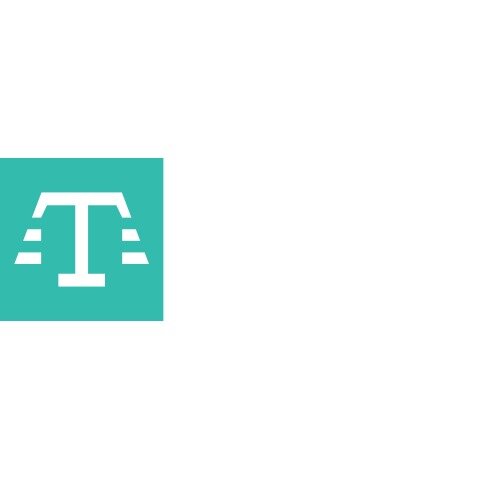Best Lawsuits & Disputes Lawyers in Tabriz
Share your needs with us, get contacted by law firms.
Free. Takes 2 min.
List of the best lawyers in Tabriz, Iran
About Lawsuits & Disputes Law in Tabriz, Iran
The legal landscape surrounding lawsuits and disputes in Tabriz, Iran, often mirrors the broader framework of Iranian civil law. In Tabriz, the judicial process is governed by the civil law system based on the Islamic principles embedded in Iran's legal system. Residents may encounter various legal disputes ranging from contractual disagreements to property rights and family law issues. The legal proceedings typically start at the local courts before potentially advancing to higher judicial authorities if necessary.
Why You May Need a Lawyer
Legal disputes can arise in various forms, and hiring a lawyer can be crucial in navigating these complexities. Common situations where legal assistance might be necessary include contract disputes, breach of terms, property ownership conflicts, family-related matters such as divorce or custody battles, employment disputes, and debt recovery. A lawyer can provide guidance through the procedural requirements, advocate on your behalf, and work towards securing a favorable outcome.
Local Laws Overview
Understanding the local laws in Tabriz is vital for effectively handling lawsuits and disputes. Iranian civil law emphasizes a blend of Islamic jurisprudence and civil code, guiding contractual relationships, property rights, and family law. In Tabriz, civil disputes are primarily addressed by civil courts, which follow the principles of fairness, equity, and justice as prescribed in the legal framework. Familiarity with the process of filing lawsuits, understanding statutory limitations, and recognizing the importance of valid documentation can significantly influence the outcome of a legal dispute.
Frequently Asked Questions
What are the common types of legal disputes encountered in Tabriz?
Common disputes include contractual disagreements, property disputes, inheritance issues, family law matters, and employment-related conflicts.
How long does it take to resolve a lawsuit in Tabriz?
Duration can vary widely depending on the complexity of the case, court workload, and the parties' willingness to settle. On average, it can range from several months to a few years.
Can foreign nationals file a lawsuit in Tabriz?
Yes, foreign nationals can file lawsuits; however, they must comply with local laws and may require additional legal representation or authorization.
What should I do if I receive a court summons?
It is crucial to respond promptly. Contact a legal advisor to understand your rights and obligations, and prepare your response or defense appropriately.
What role does mediation play in resolving disputes?
Mediation can be a valuable alternative to court litigation, offering a less adversarial and potentially quicker resolution to disputes through negotiation and mutual agreement.
How can I enforce a legal judgment in Tabriz?
Legal judgments can be enforced through local enforcement agencies, with the assistance of legal counsel to ensure compliance with the judgment terms.
Who bears the legal costs in a dispute?
Typically, each party is responsible for their legal costs, unless otherwise designated by the court's decision or agreed upon in a settlement.
Are court hearings open to the public in Tabriz?
Court hearings are generally public unless the court orders a closed session to protect privacy or sensitive information.
What is the appellate process in Tabriz?
If unsatisfied with a trial court's decision, parties may appeal to a higher court. This process involves reviewing the initial case's legal aspects rather than re-evaluating factual evidence.
How can I access legal documents or case files?
Legal documents can often be accessed through the court clerk's office, subject to privacy regulations and any necessary authorizations or legal standing.
Additional Resources
For those seeking assistance, local resources such as Bar Associations, Legal Aid Organizations, and the Judiciary of Tabriz can provide support. The Ministry of Justice and the Islamic Consultative Assembly also offer guidance and information relevant to lawsuits and disputes.
Next Steps
If you require legal assistance in lawsuits and disputes, it's advisable to consult a lawyer specializing in Iranian civil law. Begin by gathering all relevant documents and evidence related to your case. Schedule consultations with potential lawyers to discuss your situation, understand possible legal strategies, and make informed decisions about proceeding with your case. Access to knowledgeable legal counsel can significantly aid in navigating the complexities of the judicial process in Tabriz.
Lawzana helps you find the best lawyers and law firms in Tabriz through a curated and pre-screened list of qualified legal professionals. Our platform offers rankings and detailed profiles of attorneys and law firms, allowing you to compare based on practice areas, including Lawsuits & Disputes, experience, and client feedback.
Each profile includes a description of the firm's areas of practice, client reviews, team members and partners, year of establishment, spoken languages, office locations, contact information, social media presence, and any published articles or resources. Most firms on our platform speak English and are experienced in both local and international legal matters.
Get a quote from top-rated law firms in Tabriz, Iran — quickly, securely, and without unnecessary hassle.
Disclaimer:
The information provided on this page is for general informational purposes only and does not constitute legal advice. While we strive to ensure the accuracy and relevance of the content, legal information may change over time, and interpretations of the law can vary. You should always consult with a qualified legal professional for advice specific to your situation.
We disclaim all liability for actions taken or not taken based on the content of this page. If you believe any information is incorrect or outdated, please contact us, and we will review and update it where appropriate.
Browse lawsuits & disputes law firms by service in Tabriz, Iran
Tabriz, Iran Attorneys in related practice areas.








